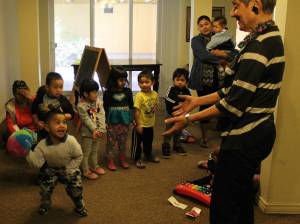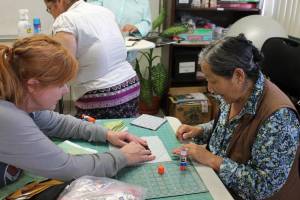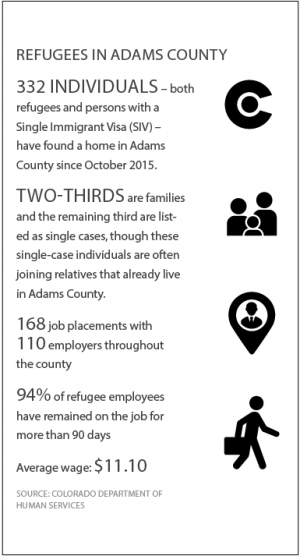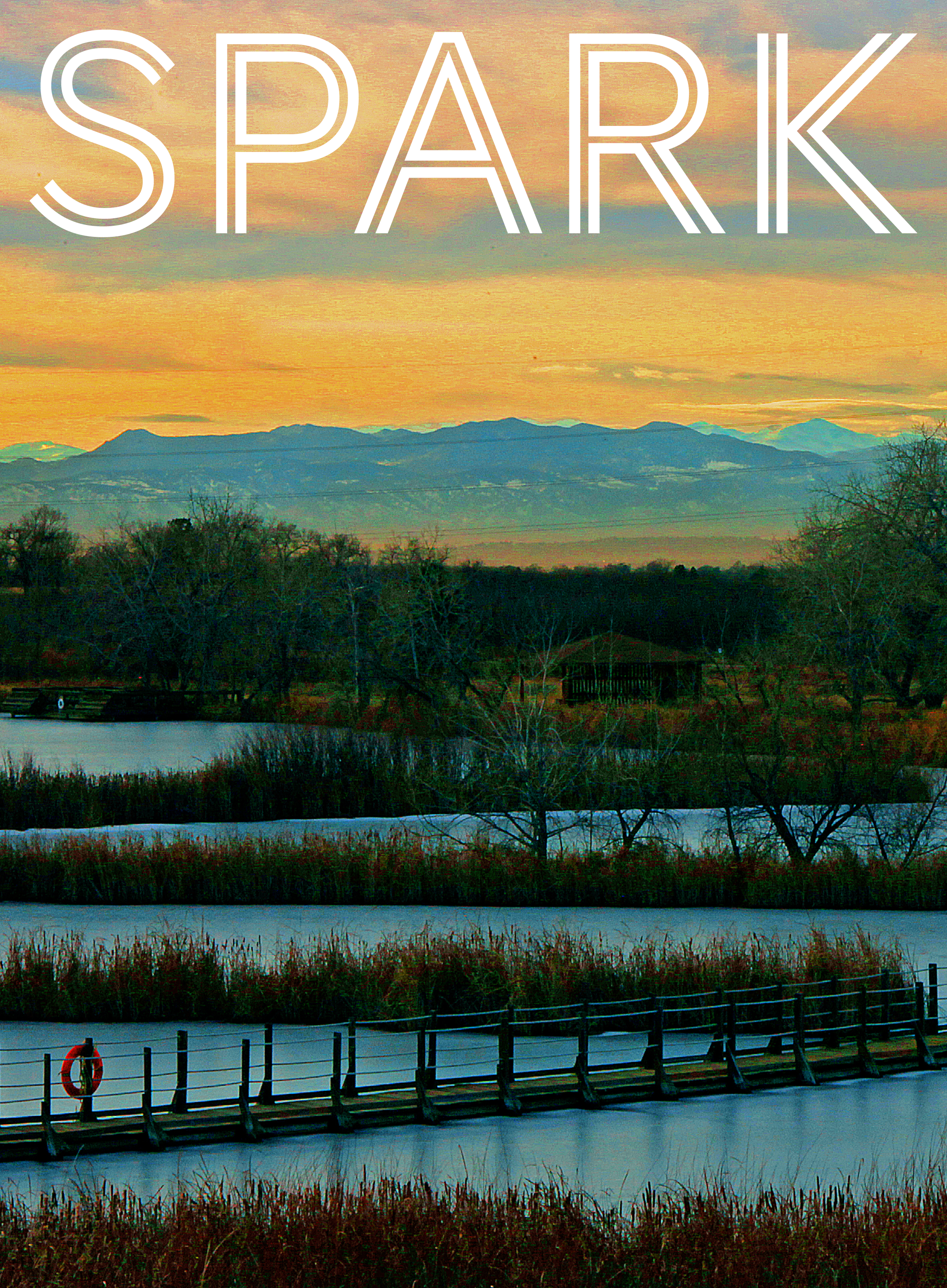Transitioning to health

Immigrants and refugees look for community and health in Colorado
In 2015, 2,250 refugees and those eligible to receive refugee benefits (asylum grantees, for example) made Colorado their new home. Individuals who receive this official refugee status can come from a variety of countries and ethnicities, with varying cultural practices and religions. However, they all have been granted asylum because of their experiences – fear of persecution based on their race, religion, nationality, social group or political opinions. Many have lived through war and other traumas.
 For immigrants and refugees transitioning to life in the United States, resettling can come with its own set of challenges. While some individuals have family members who can help them to practice their English and explain the nuances of daily life, many others do not. Those individuals rely on help from non-profits and community organizations that seek to help refugees in a number of different ways. The Emily Griffith School of Opportunity, for example, offers English as a Second Language (ESL) courses specifically designed for refugee populations. Libraries like High Plains Library District in Weld County, Colo., have formed collaborative partnerships to build common ground and increase literacy rates for refugees in their community. Meanwhile, Denver Urban Gardens helps refugees to grow new roots and access food through community gardens. At the Spring Institute, a nationally recognized provider of intercultural learning programs and services, the Project SHINE initiative focuses on assistance for one of the most complicated and vital concerns for such individuals: health care.
For immigrants and refugees transitioning to life in the United States, resettling can come with its own set of challenges. While some individuals have family members who can help them to practice their English and explain the nuances of daily life, many others do not. Those individuals rely on help from non-profits and community organizations that seek to help refugees in a number of different ways. The Emily Griffith School of Opportunity, for example, offers English as a Second Language (ESL) courses specifically designed for refugee populations. Libraries like High Plains Library District in Weld County, Colo., have formed collaborative partnerships to build common ground and increase literacy rates for refugees in their community. Meanwhile, Denver Urban Gardens helps refugees to grow new roots and access food through community gardens. At the Spring Institute, a nationally recognized provider of intercultural learning programs and services, the Project SHINE initiative focuses on assistance for one of the most complicated and vital concerns for such individuals: health care.
 Gaining health literacy can be an especially difficult task for refugees. Between insurance information, language barriers and a complicated medical system, simply accessing basic health care can be daunting. Further complicating the situation is the fact that many individuals arriving as refugees or immigrants have faced extreme situations, including war and malnutrition.
Gaining health literacy can be an especially difficult task for refugees. Between insurance information, language barriers and a complicated medical system, simply accessing basic health care can be daunting. Further complicating the situation is the fact that many individuals arriving as refugees or immigrants have faced extreme situations, including war and malnutrition.
Meeting these needs means getting out into the refugee community. Project SHINE focuses on advocacy for health literacy in adult care facilities, community rooms, and the apartments and homes, where refugees and immigrants live. It’s there that healthcare providers and medical students engage with them.
Dr. Jamaluddin Moloo, director of the CU-UNITE and Cardiac CT at the University of Colorado School of Medicine, works with Project SHINE to help students and residents bridge that health literacy gap through an elective course focused on refugee health.
“Part of what this [course] is about is for our trainees to understand that every individual patient is going to have a unique history,” says Dr. Moloo. “For a lot of refugee populations, the circumstances they have been in and been through are frequently a lot more severe than, luckily, most us who have grown up in this country have had to go through – whether we talk about trauma, whether we talk about nutrition or whether we talk about education.”
As part of this partnership, Dr. Moloo’s students and residents do everything from home visits to personalized medication coaching to senior center outreach. These experiences, he notes, help transform medical treatment from a clinical interaction into something more social.
 “[Those in health care] are often much more focused on the medical illness as opposed to thinking about the social determinates of health that can impact a patient or their families for life,” says Moloo. “So the refugee health elective is really focused on giving our students and residents exposure to all of the other factors that are going to impact an individual’s health.”
“[Those in health care] are often much more focused on the medical illness as opposed to thinking about the social determinates of health that can impact a patient or their families for life,” says Moloo. “So the refugee health elective is really focused on giving our students and residents exposure to all of the other factors that are going to impact an individual’s health.”
Over the past few years, Dr. Moloo notes that the larger populations of refugees his trainees have worked with here in Colorado are Iraqis, Burmese and Bhutanese. As the U.S. plans to accept 10,000 refugees displaced from Syria by 2017, he expects to start serving this particular community in greater numbers in the coming year.
Click here to learn one Syrian immigrant’s story.
For immigrants and refugees looking to transition to a new life away from some of the world’s most intense conflicts, connecting with community resources is essential to learning, adjusting and, perhaps most importantly, gaining health.
“The trust of the [refugee] community is invaluable in the work we do,” notes Brandy Kramer, program manager for Project SHINE at the Spring Institute. “I love it because I see people getting healthier, and when people are healthy they go to work, their children thrive in school, they take advantage of our beautiful state by becoming contributing members of our community.” ■
Libraries serve
When it comes to aiding refugee and immigrant populations, libraries can play a key role in helping individuals transition to life in the U.S. The High Plains Library District (HPLD) in northern Colorado is just one example. With assistance from a number of awarded grants, HPLD serves to advance the integration of refugees and immigrants in their community through a variety of programs and collaborative efforts, including:
- Partnerships with agencies such as the Global Refugee Center, Centennial Board of Cooperative Education Services, Aims Community College and Right to Read of Weld County
- HPLD is a member of the United Way of Weld County’s Refugee Collaboration Council (RCC), a group of direct service providers who meet regularly to discuss, plan for and collaborate on services for refugees.
- Working with refugees and
- immigrants at a local high school
- to write, print and digitally record “little books” that were added to their collection
- Somali-language and English/Somali bilingual materials in the library
- Programs to help the community better understand Somali culture
- Intercultural event collaboration, such as a community Thanksgiving dinner
- Resources like adult literacy, ESL, storytime and citizenship classes
Send your questions or feedback to ithink@anythinklibraries.org or post in the comments below.

